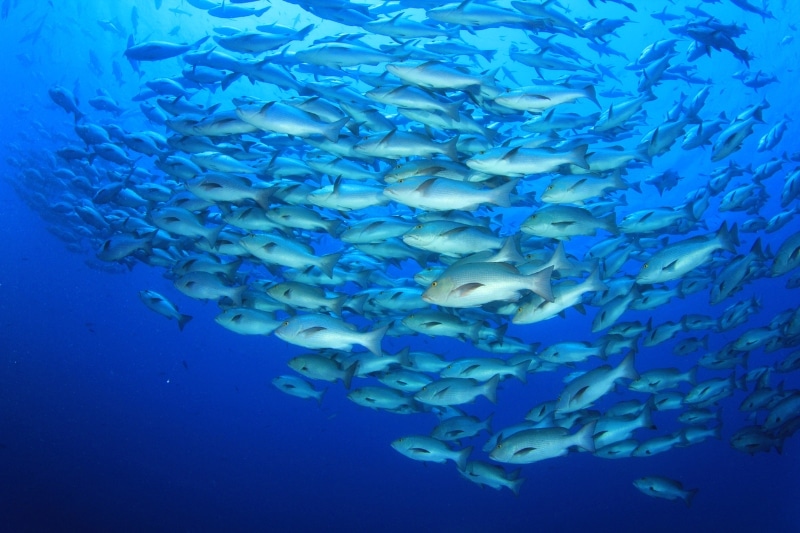Indonesia aims to modernize its fisheries sector to meet the growing demand for farmed seafood and capture a larger share of the lucrative global markets, valued at USD 421 billion. With ambitious targets set by the Ministry of Marine Affairs and Fisheries, including a goal to export USD 7.2 billion worth of fishery products by 2024, the government seeks to quadruple output from pre-pandemic levels. Efforts also include the restoration of over 300,000 hectares of dormant shrimp-farming ponds to bolster production. Overall, Indonesia aims to achieve a total fishery product output of 30.8 million tons this year.
The national initiative has brought attention to aquaculture startups in the industry, several of which leverage technology to meet demand. eFishery, backed by Temasek and established in 2013, has emerged as a unicorn by utilizing the Internet of Things (IoT), artificial intelligence (AI), and deep tech to address Indonesia’s food security concerns.
Traditional fish farmers often manually feed their fish, but eFishery provides automated feeding tools to assist breeders. These feeders monitor the hunger levels of fish and shrimp by detecting their movements, thereby preventing issues like overfeeding or underfeeding. Additionally, the sensors can gauge water temperature and humidity, optimizing production levels. eFishery’s platform has been adopted by over 200,000 farmers across 280 Indonesian cities. The company plans to expand its user base to one million farmers by 2025.
Indonesia ranks second globally in aquaculture production, yielding 14.8 million tonnes in 2020, representing 13.2% of the world’s total output, trailing behind China. Despite its significant production, Indonesia ranks 12th globally in export value. Fishermen in Indonesia are notably underpaid, earning less than USD 84 monthly, leading to a decline in their numbers. The sector faces social and economic challenges, with 2.7 million fishermen contributing 25% of the national poverty rate. However, according to Jala’s CEO, an aquaculture startup, integrating AI and other emerging technologies offers the potential to address these issues, fostering inclusivity in the digital economy.
Jala, a digital solution provider for shrimp farming, utilizes technology to track environmental conditions and feeding data, empowering farmers to optimize yields. With over 20,000 users, its mobile app oversees shrimp in 35,000 ponds. Last November, Jala secured USD 13.1 million in Series A funding, spearheaded by Intudo Ventures.
The industry faces a challenge with up to seven intermediary layers between fishermen and end customers, resulting in most profits going to intermediaries. Indonesian startup Aruna addresses this by offering fishermen direct access to international buyers through its supply chain aggregator platform. Aruna also collaborates with local grocery e-commerce platforms like Tokopedia, Bukalapak, and Shopee to include fish products in their catalog
(Source: The Business Times)
